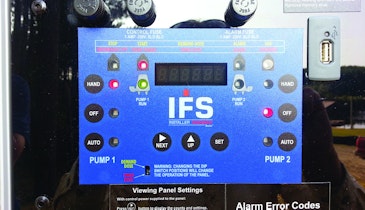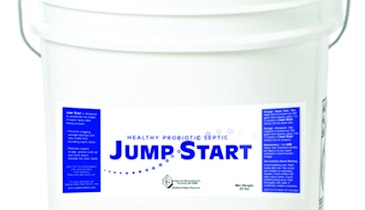Florida governor Charlie Crist signed a septic tank inspection bill, requiring the state’s 2.6 million tanks to be inspected every five years. The rule also creates a grant program for low-income homeowners whose tanks need repairs or replacement.
Half the tanks are more than 30 years old, and regulators estimate that one in every 10 is failing. Under the program, contractors will inspect about 500,000 tanks per year, charging no more than $30. State health officials must have the in-spection system operational by 2016.
An April sting operation at marinas on Merritt Island and in Vero Beach resulted in 10 citations and 35 warnings to boat operators illegally dumping septage into the Intracoastal Waterway. Complaints of human waste in the water prompted the Florida Fish and Wildlife Conservation Commission action.
California
A state assemblyman has proposed a ban on some chemical treatments for holding tanks in boats and RVs that can harm bacteria in sewage systems. AB 1824, introduced by Bill Monning (D-Santa Cruz), would prohibit bronopol, dowicil, formaldehyde, glutaraldehyde, paraformaldehyde and para-dichlorobenzene in “a chemical toilet, recreational vehicle, or waste facility of a vessel.”
The California Association of RV Parks & Campgrounds issued a statement supporting the bill in early April. “We fully support this legislation and think it will encourage businesses to step up their marketing and distribution of environmentally friendly holding tank products in California,” said the group’s executive director, Debbie Sipe. The group also said it has spent five years “trying to find ways to protect its members’ septic systems and nearby groundwater supplies.”
Iowa
Seven counties now require onsite installers to be certified through the National Environmen-tal Health Association’s Certified Installer of Onsite Wastewater Treat-ment Systems national credential.
According to the spring 2010 newsletter of the Iowa Onsite Waste Water Association, the certification was first required in Bremer County in 2008. The group reports that 158 installers in Iowa hold the credential, more than in any other state. IOWWA is assessing the requirements for credentials or continuing education in all 99 counties. “It’s not required, but it’s good business,” says the group’s spring newsletter.
Missouri
An EPA grant of $970,000 will be used to extend sewer service in Gravois Mills near the Lake of the Ozarks. The grant will fund the hooking up of about 360 homes to the local sewer district’s system.
An agreement between the EPA and Kansas City will result in a 25-year, $2.5 billion sewer improvement plan. The EPA had alleged that sewer overflows violated the Clean Water Act. The agreement provides for about $720,000 in civil penalties and $1.7 million to fund the connection of low- and moderate-income homes to the sewer system.





